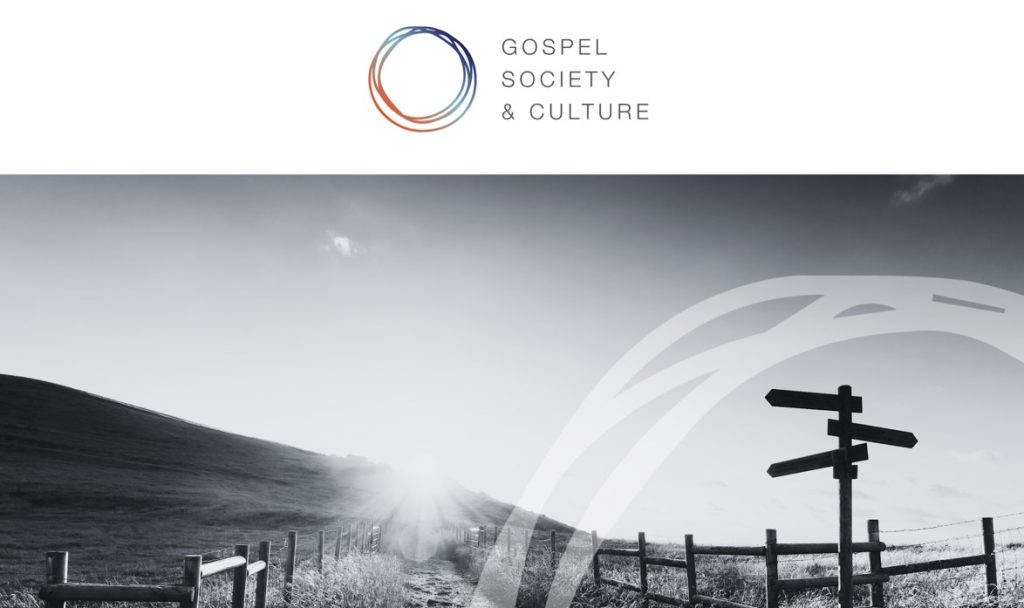Leading the Gospel, Society and Culture Committee for the past decade has been one of the highlights of my years of ministry. It has given me the privilege to work with people who are gifted and thoughtful and committed to serving the Lord and his church. Our discussions are stimulating, encouraging and challenging.
In the Lord’s timing, the GS&C committee was set up at just the right time. In 2012 the Royal Commission into Institutional Child Abuse was just commencing. Australian law stated that marriage was “between a man and a woman”, and attempts to change that were defeated in federal parliament. Euthanasia was prohibited in every jurisdiction in Australia. Gender transition was a fringe issue. Israel Folau was just about to start playing Rugby Union for the Wallabies. Sixty-one per cent of the Australian population stated that they were Christians. Melbourne hosted a major conference for the new Atheists. Jordan Peterson had yet to register his YouTube channel. Most of us could not imagine a worldwide pandemic, the prospect of public health lockdowns, mandatory mask-wearing nor divisions over vaccinations.
A lot has changed in the past decade!
Those changes have brought new challenges for the church and opened new opportunities. We have realised that we need to think about ethical, social and political issues independently from the culture. Christians need to know what is happening in the culture because things are changing quickly and new issues emerge constantly. Yet, we cannot presume to find answers from the wider culture. Politics is increasingly polarised and fractious, and that feeds into church life. People want the church to speak to the hot-button issues, but that can be a tricky exercise.
At the same time, Jesus is unfamiliar to people in our society and his words and ways provoke curiosity. There are new gaps in our culture where people are ready to consider Jesus for the first time.
The GS&C committee aims to help the Presbyterian Church in NSW and ACT face these challenges, and make the most of the opportunities. We do not imagine that we have all the answers! We are glad to help the church in its mission, to take the message of Jesus to all people.
Recently we invested time in clarifying how we approach various issues in our brief. It has been a good process for us to clearly and transparently state our approach and we think it is useful to share it with the church as well.
A Gospel Approach to Society and Culture is a summary of our approach. It is not a ‘cookie-cutter’ method — we know that each issue and situation needs a specific response. It is a broad outline of how we approach issues.
The gospel is at the centre of our approach. Jesus is the word of God — the meaning and purpose of the whole of reality. All of life must be understood in relation to him. He is also the Word who became flesh to redeem the world and restore it to what it is meant to be. So, we understand our problems and their solutions in light of Jesus. He brings more than new insights or a new perspective — he is central to the answer to every life question. We want to show that as clearly as we can.
“Jesus is the answer” can be a cliché. We aim to avoid that with a careful look at how the Bible connects with each issue we consider. The big themes of the Bible are highly relevant to any topic —technology, sexuality, medical care, family life, politics, or education. The Bible gives us a framework in which we can see the good gifts of God’s creation, the terrible effects of sin and the redemption of all things in Christ. We work out how to live as faithful disciples of Jesus in that framework. So, we aim to set out Bible-based, Jesus-centred responses.
An important part of following Jesus who made and loves this world is that we value the wisdom he gives through all sources. Within the framework of the Bible, we can benefit from thorough research. People made in God’s image can use the abilities he gives to understand his world. When that is done carefully and wisely, there are things for us to learn.
A Gospel Approach to Society and Culture works through this approach in more detail as a guide to thinking biblically and responding faithfully. We hope it will help you see where we are coming from, as well as give some ideas on how to develop a gospel engagement with society and culture. We also hope that you will keep us accountable for producing resources consistent with our aims, and that the Lord will use us to continue the transforming work of the church.

